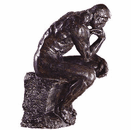Managing Change Successfully (Enhanced DVD)
Product Description:
Change management models for leadership are a framework for global business strategy. When multinationals organizations first sought acquisition as a mechanism for foreign market entry in masse, the proposal that greater capitalization would come of globalization was only partly true without adequate response to differences in business culture. The term “change management” proposed a new logic to reframe corporate problems. What has come out of this history is a large body of thought leadership scholarship on managing change organizations.
The introduction of new change models identifying the most effective and efficient approaches to market entry, covered a range of topics including: lean and agile operations, charismatic leadership, cultural intelligence, and transformational technologies. Emerging markets have also promoted change in multinational culture from the outside through a proliferation of remote outsourcing services at a discount price. Small and medium-sized (SME) enterprises are also benefitting from the advancement of consultancy capabilities. As a result, business process outsourcing has triggered a number of major changes in the business environment.
Managers with experience at implementing organizational change acknowledge altering the status quo is not always easy. What were once appropriate policies and behaviors in an organization may no longer be acceptable to an acquirer. Modification of processes and cultural values demands thorough attention to ensure that critical operational and legal elements that have the potential to create costly litigation or lost earnings for a company are not ignored.
Managing Change Successfully (2007) looks at the four qualities required to manifest change in organizations; offering steps to eliminating risk, implementing strategic goals in the interest of greater profitability.
Managing Change Successfully
The introduction of new change models identifying the most effective and efficient approaches to market entry, covered a range of topics including: lean and agile operations, charismatic leadership, cultural intelligence, and transformational technologies. Emerging markets have also promoted change in multinational culture from the outside through a proliferation of remote outsourcing services at a discount price. Small and medium-sized (SME) enterprises are also benefitting from the advancement of consultancy capabilities. As a result, business process outsourcing has triggered a number of major changes in the business environment.
Managers with experience at implementing organizational change acknowledge altering the status quo is not always easy. What were once appropriate policies and behaviors in an organization may no longer be acceptable to an acquirer. Modification of processes and cultural values demands thorough attention to ensure that critical operational and legal elements that have the potential to create costly litigation or lost earnings for a company are not ignored.
Managing Change Successfully (2007) looks at the four qualities required to manifest change in organizations; offering steps to eliminating risk, implementing strategic goals in the interest of greater profitability.
Managing Change Successfully
- DVD
- ISBN 978-1-62290-945-2
- Run Time (16 Minutes)
- Copyright 2007
- Closed Captioned (CC)
Customer Reviews
Copyright © 2002-2025 Madison Art Shop™ LLC. All Rights Reserved.

















